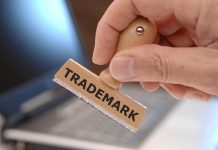This article has been written by Shradha Jain, pursuing the Diploma in Intellectual Property, Media and Entertainment Laws from LawSikho.
Table of Contents
Introduction
Amazon filed 13 lawsuits against accused counterfeiters conducting business on its site only days after Congress failed to pass a federal anti-counterfeiting bill that would have forced online retail platforms like Amazon to undertake more severe due diligence on its vendors. “The vast majority of Amazon customers shop with the confidence knowing they will receive an authentic product,” said Dharmesh Mehta, vice president of Customer Trust and Partner Support at Amazon. “In the rare instances when bad actors attempt to take advantage of customers and companies like HanesBrands, our team is relentless about tracking down and holding them accountable.”
Brands can petition Amazon to remove items that infringe on their intellectual property, and Amazon claims to employ software to detect suspicious listings before they are uploaded, claiming last month that it had banned 10 billion questionable listings, some of which were potentially counterfeit. In light of Amazon’s commitment to blocking sales of counterfeit products through its platform, I will present the issues involved, the rules applicable, and their analysis in the present lawsuits.
Background
The owner of the renowned Champion brand, HanesBrands, is a socially responsible leading maker of daily casual clothing in the Americas, Europe, Australia, and Asia-Pacific. For over a century, the Champion brand has been linked with high-quality uniforms and gear for amateur and professional athletes, as well as popular sportswear and leisurewear designs for children and adults. Millions of ordinary people, celebrities, and sportsmen have worn Champion gear, and the Champion brand has become one of the most recognizable sportswear companies in history.
Amazon.com, Inc. (“Amazon”), in collaboration with HanesBrands, Inc., filed 13 lawsuits against 17 defendants today for selling silicone protective earbud case covers that illegally bear HanesBrands’ registered Champion trademarks. According to the complaint, HanesBrands, a producer of daily casual clothing and owner of the “iconic” Champion brand, has been harmed by the defendants’ unauthorized use of its well-known and valuable IPR. The cases were brought in the Western District of Washington of the United States District Court. The complaints, filed in federal court in Seattle on June 10th, 2021, in collaboration with T-shirt manufacturer Hanes, claim that a range of organizations and nameless people are selling counterfeit Hanes- and Champion-branded products on Amazon’s Marketplace platform for third-party merchants.
According to the complaint, by joining up as third-party vendors, the defendants pledged not to offer counterfeit items. According to the lawsuit, HanesBrands “launched a limited-edition line of electronic accessories, including coverings for earphone cases, displaying HanesBrands’ Champion Trademarks” on May 21, long after the defendants’ fraudulent items were identified and removed from the Amazon shop.
In the Americas, Europe, Australia, and Asia-Pacific, HanesBrands is a socially responsible leading seller of daily athletic gear. HanesBrands’ brands include some of the world’s most recognizable names, including Hanes, Champion, Bonds, DIM, Bali, Maidenform, and others.
The plaintiffs claimed federal trademark infringement, fraudulent designation of origin, and deceptive advertising, as well as a violation of the Washington Consumer Protection Act. The plaintiffs seek an order prohibiting the manufacturing and sale of counterfeit merchandise, as well as, more broadly, prohibiting the defendants from selling anything on Amazon.com. The lawsuit also demands monetary damages, as well as the plaintiffs’ legal costs and attorneys’ fees.
Issue
- Did the alleged defendants unlawfully utilize HanesBrands’ registered Champion trademarks?
- Was the intention of the defendant to mislead buyers regarding the legitimacy and origin of the items, as well as to establish a fake association with HanesBrands?
Rule
- Trademark– is any term, name, symbol, or device adopted or used by a person to identify and differentiate products manufactured or sold by that person from things made or sold by others. The registration of a trademark grants the registered user exclusive use of that trademark and protects the user’s rights. A trademark can be registered with the following organizations:
- the United States Trademark and Patent Office, for the fullest possible protection;
- the Washington Secretary of State’s Office for a trademark that is only used inside the state or region; or
- the federal office as well as the state office.
RCW 19.77 governs trademark registration in Washington. Washington’s legislation is based on the Model State Trademark Bill (MSTB).
Trademark Infringement- The unlawful use of a trademark or service mark on or in connection with products and/or services in a manner that is likely to cause confusion, deception, or error regarding the source of the goods and/or services is referred to as trademark infringement.
- Washington’s Consumer Protection Act– A private individual has the standing to sue for unfair or misleading business conduct under Washington’s Consumer Protection Act. The use of “unfair techniques of competition and unfair and deceptive acts or practices in the conduct of trade or commerce” is prohibited. The public interest criterion consequently sets a constraint on the Act’s otherwise broad interpretation. The Washington Supreme Court has set two standards for satisfying the public interest requirement: (1) the per se test; and (2) the Anhold v. Daniels test.
- In Hangman Ridge Training Stables, Inc. v. Safeco Title Ins., Co., the Supreme Court defined the elements of a private Consumer Protection Act as “unfair or deceptive acts or practices” action: We hold that to prevail in a private CPA action … a plaintiff must establish five distinct elements: (1) unfair or deceptive act or practice; (2) occurring in trade or commerce; (3) public interest impact; (4) injury to the plaintiff in his or her business or property; (5) causation.
Photos of products offered for sale defendant in the Amazon store as pictured by Complainant (HanesBrands)
Analysis
The Defendants sought to sell illegal items in Amazon’s shop, infringing on HanesBrands’ registered Champion trademarks and breaching the law. For trademark infringement, a plaintiff must establish in court that it possesses a legitimate mark, that it has priority, and that the defendant’s mark is likely to confuse customers about the source or sponsorship of the goods or services supplied under the parties’ marks. HanesBrands claims that the defendant Amazon sellers are breaking the law by providing and selling “silicone coverings for earbud cases that illegally display registered trademarks of HanesBrands, Inc.,” particularly Champion’s name and well-known “C” emblem, without the company’s permission. This mark is registered by HanesBrands and the sellers did not obtain the necessary permission from the owner. The sellers want to exploit customers’ confidence in Amazon by seeking to create Amazon Selling Accounts in order to advertise, market, offer, and sell inauthentic products. According to Amazon, the defendants fall into this category and have attempted to “misuse and violate the trademarks and other intellectual property of the genuine makers of those items in order to defraud Amazon and its customers.” This presents a strong case for trademark infringement, making the seller liable. The selling of these counterfeiting goods that are of false origin designation results in breaches of the Washington Consumer Protection Act. Such sales of products by the Defendants are misleading to buyers regarding the legitimacy and origin of the items, as well as to establish a fake association with HanesBrands. Plaintiffs must establish five factors mentioned above in the rules.
The sellers were involved in “unfair methods of competition and unfair and deceptive acts or practices in the conduct of trade or commerce”, which falls in the categories stated above for establishing a claim. This establishes a solid case for deception if the customers bought the counterfeited goods with the expectation that it is the original and genuine product. If HanesBrands can establish this then the sellers will be in trouble and might have to pay huge sums in damages to the complainant.
As the court had said in Young v. Toyota Motor Sales examined the specifics of the first element above. The case turned on whether the defendant’s unfair or deceptive act needed to be “material” for a plaintiff to prevail on a CPA claim. The Court ultimately determined that a defendant’s unfair or deceptive act does not need to be material. Hence it is important that the Complainant establish it, it being material is not important.
Conclusion
The cases are not only the most recent in Amazon’s larger effort to boost consumer and brand trust in its vast marketplace, especially as it seeks new partners in the fashion and luxury space, but they are also the most recent in a growing string of joint actions initiated by Amazon and fashion brands such as Valentino and Salvatore Ferragamo, as well as companies such as Yeti and KF Beauty. Amazon created its Counterfeit Crimes Unit in June 2020, a worldwide team devoted to investigating criminal actors and holding them responsible to the full extent of the law, including via collaboration with law authorities. Amazon rigorously bans infringing and counterfeit items in its shop and has invested over $700 million and hired over 10,000 personnel to proactively safeguard its store from bad actors and harmful products. With Amazon gearing up with the big corporations to stop counterfeiting it is clear that the intent is to create deterrence against such IPR infringements in the future.
References
- https://press.aboutamazon.com/news-releases/news-release-details/amazon-and-hanesbrands-file-joint-lawsuits-against-infringers.
- https://www.sos.wa.gov/corps/trademark-home.aspx.
- https://www.thefashionlaw.com/amazon-and-hanesbrands-team-up-to-file-13-lawsuits-over-the-sale-of-counterfeit-champion-products/.
- https://govt.westlaw.com/wciji/Document/I2cd28704e10d11dab058a118868d70a9?transitionType=Default&contextData=%28sc.Default%29.
- https://lawstreetmedia.com/tech/amazon-and-hanesbrands-team-up-against-counterfeiters-in-flurry-of-lawsuits/.
Students of Lawsikho courses regularly produce writing assignments and work on practical exercises as a part of their coursework and develop themselves in real-life practical skills.
LawSikho has created a telegram group for exchanging legal knowledge, referrals, and various opportunities. You can click on this link and join:
 Serato DJ Crack 2025Serato DJ PRO Crack
Serato DJ Crack 2025Serato DJ PRO Crack










 Allow notifications
Allow notifications


